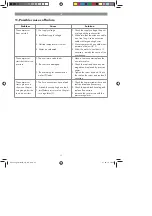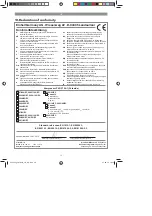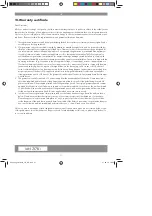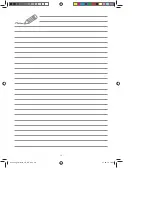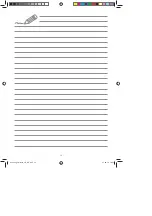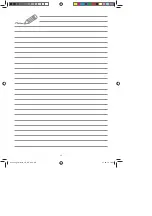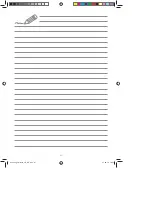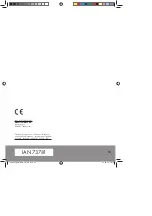
GB
- 52 -
9. Cleaning, maintenance,
ordering of spare parts and
storage
Important!
Pull out the power plug before doing any
cleaning and maintenance work on the
equipment. Risk of injury from electric
shock!
Important!
Wait until the equipment has cooled
down completely! Risk of burns!
Important!
Always depressurize the equipment be-
fore carrying out any cleaning and main-
tenance work! Risk of injury!
9.1 Cleaning
•
Keep the equipment free of dirt and dust as
far as possible. Wipe the equipment with a
clean cloth or blow it down with compressed
air at low pressure.
•
We recommend that you clean the equipment
immediately after you use it.
•
Clean the equipment regularly with a damp
cloth and some soft soap. Do not use cleaning
agents or solvents; these may be aggressive
to the plastic parts in the equipment. Ensure
that no water can get into the interior of the
equipment.
•
You must disconnect the hose and any
spraying tools from the compressor before
cleaning. Do not clean the compressor with
water, solvents or the like.
9.2 Maintenance work on the pressure
vessel (Fig. 1)
Important! To ensure a long service life of the
pressure vessel (7), drain off the condensed water
by opening the drain valve (9) each time after
using. Release the vessel pressure fi rst (see 9.7.1).
Open the drain screw by turning counter-clock-
wise (looking at the screw from the bottom of the
compressor) so that all the condensed water can
run out of the pressure vessel. Then close the drain
screw again (turn it clockwise). Check the pressure
vessel for signs of rust and damage each time
before using. Do not use the compressor with a
damaged or rusty pressure vessel. If you discover
any damage, then please contact the customer
service workshop.
Important!
The condensed water from the pressure
vessel will contain residual oil. Dispose
of the condensed water in an environ-
mentally compatible manner at a suitable
collection point.
9.3 Safety valve (Figure 3)
The safety valve (19) has been set for the highest
permitted pressure of the pressure vessel. It is
prohibited to adjust the safety valve or remove its
seal. Actuate the safety valve from time to time to
ensure that it works when required. Pull the ring
with suffi cient force until you can hear the com-
pressed air being released. Then release the ring
again.
9.4 Checking the oil level at regular inter-
vals (Figure 11)
Place the compressor on a level and straight sur-
face. The oil level must be between the MAX and
MIN marks on the oil level window (Fig. 18). Oil
change: we recommend SAE 15W 40 or equiva-
lent. The original oil fi lling must be changed after
100 hours in operation; thereafter the oil must be
drained and replaced with new oil after every
500 hours in operation.
9.5 Changing the oil (Figure 1,10, 11)
Switch off the engine and pull the mains plug out
of the socket. After releasing any air pressure you
can unscrew the oil drain plug (12) from the com-
pressor pump (13). To prevent the oil from running
out in an uncontrolled manner, hold a small metal
chute under the opening and collect the oil in a
vessel. If the oil does not drain out completely, we
recommend tilting the compressor slightly. When
the oil has drained out, refi t the oil drain plug (12).
Anleitung_4010367_LB_CH.indb 52
Anleitung_4010367_LB_CH.indb 52
27.03.12 16:22
27.03.12 16:22


















